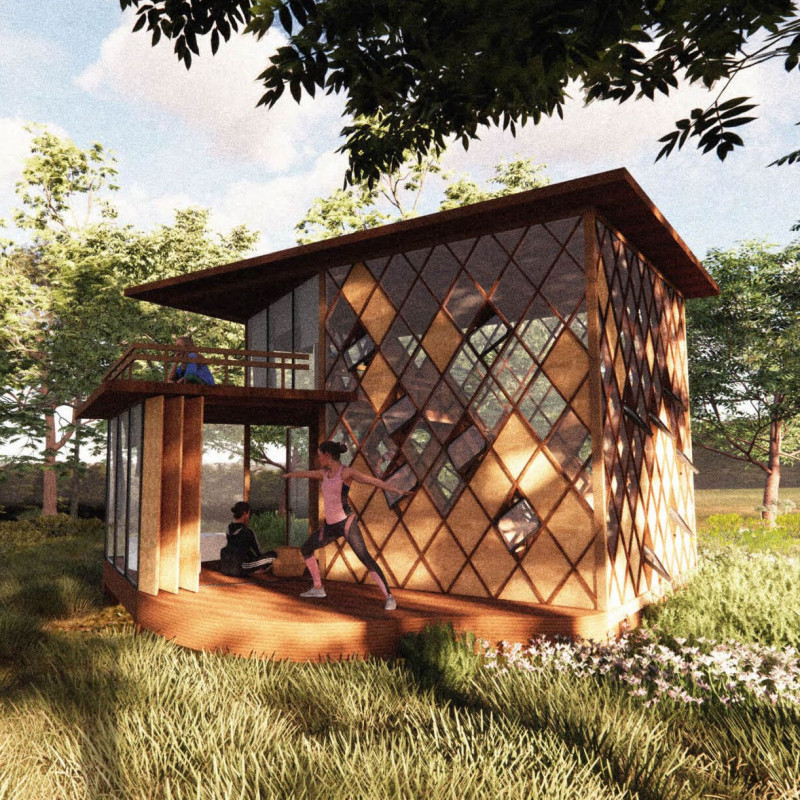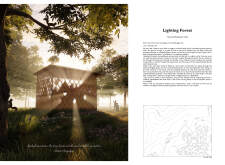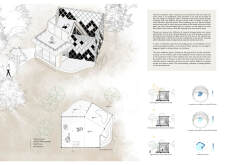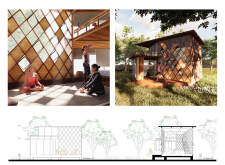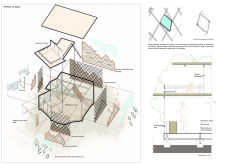5 key facts about this project
The Tiny Kiwi Meditation Cabin is located in a tranquil forest setting, designed to serve as a place for reflection and mindfulness. The building encourages visitors to take a break from their busy lives and embrace the peace of nature. Its architecture reflects natural shapes and materials, allowing the cabin to fit well within the landscape.
Design Concept
The design focuses on foot access, which means visitors must walk to reach the cabin. This design choice fosters a deeper connection to the surrounding forest. Inspired by organic forms, the cabin aims to create a calming atmosphere. It is a space meant for meditation and personal reflection, providing an escape from everyday distractions.
Structural Elements
The building features a diamond-shaped wooden frame that supports its structure while also adding to its visual appeal. This frame enhances the play of light and shadow throughout the day, creating a dynamic interior. The facade combines wood panels and diamond-shaped glass. This combination allows for beautiful views while maintaining privacy for users.
Interior Layout
Inside, the main meditation area is positioned on the ground floor. There is also a small altar for flower essences located on the northeast side. The layout includes a mezzanine space for relaxation, making it easy for users to find their preferred spots for quiet time. This design encourages a natural flow between the different areas.
Natural Integration
Several outdoor platforms connect to the cabin, promoting an intimate relationship with the forest. These spaces invite users to step outside and engage with nature, enhancing the meditative experience. The building is elevated to accommodate heating systems beneath. This thoughtful design choice ensures comfort in different weather conditions, while also offering clear views of the surrounding nature.
Plywood is the primary material used in construction, chosen for its light weight and durability. It allows for efficient prefabrication, with all components designed to fit together seamlessly. Each element in the cabin contributes to an inviting space for contemplation, encouraging visitors to find peace in the beauty of their natural surroundings.


